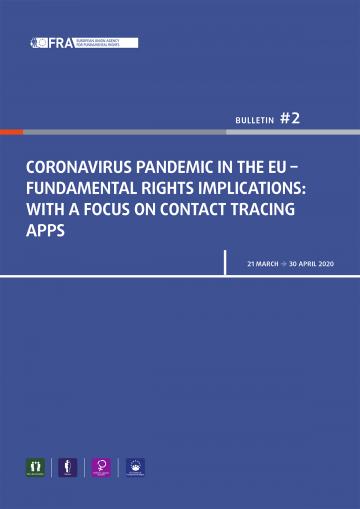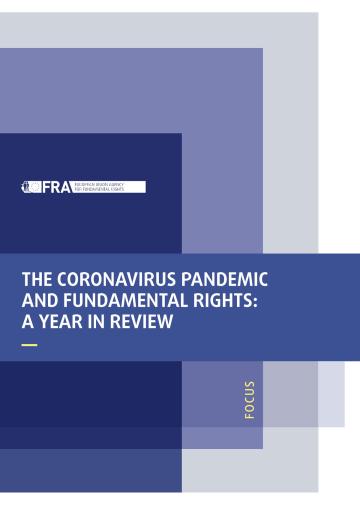The COVID-19 pandemic continues to interrupt everyday life in the EU in unprecedented ways. The way it affects our societies is shifting, however. As numbers of deaths and infections peaked in late March and early April, governments across the EU continued to introduce new and extend existing measures to contain the spread of the virus (for developments from 1 February – 20 March 2020 see FRA Bulletin #1 on COVID-19). By the end of the reporting period on 30 April, however, many Member States announced plans to lift some of the most restrictive measures implemented at the start of the pandemic, including limits on leaving the house and meeting people outside the household, and closure of all nonessential businesses. In these cases, it is paramout to ensure that the rights to life and to health are upheld as daily life transitions to a ‘new normal’.
This report outlines some of the measures EU Member States have put in place to protect public health during the Coronavirus pandemic. It highlights how they may affect fundamental rights; where specific Articles are mentioned in the report, these refer to the Charter of Fundamental Rights of the European Union as a proxy also for the many other human rights standards that apply at national level. It focuses on four interrelated issues:
- states of emergency or equivalent measures;
- measures to contain the spread of COVID-19 and mitigate its impact on social life, education, work, the justice system, and travel to and within the EU;
- the impact of the virus and efforts to limit its spread on particular groups in society, namely older persons and persons with disabilities, Roma and Travellers, detainees, and homeless persons;
- how tracing apps and other technologies to monitor the spread of COVID-19 can impact fundamental rights, in particular data protection and privacy.
The combination of the most widespread restrictions on daily life experienced in peacetime in modern Europe affect everyone living in the EU, albeit in different ways. This has profound implications for the enjoyment across our societies of nearly all of the fundamental rights enshrined in the Charter. The following paragraphs outline key findings from FRA’s data collection across the 27 EU Member States, illustrating the impact of the virus and the measures to contain it.
FRA will continue to examine the impact on fundamental rights of the virus and measures to contain it in follow-up reports in the coming months.









